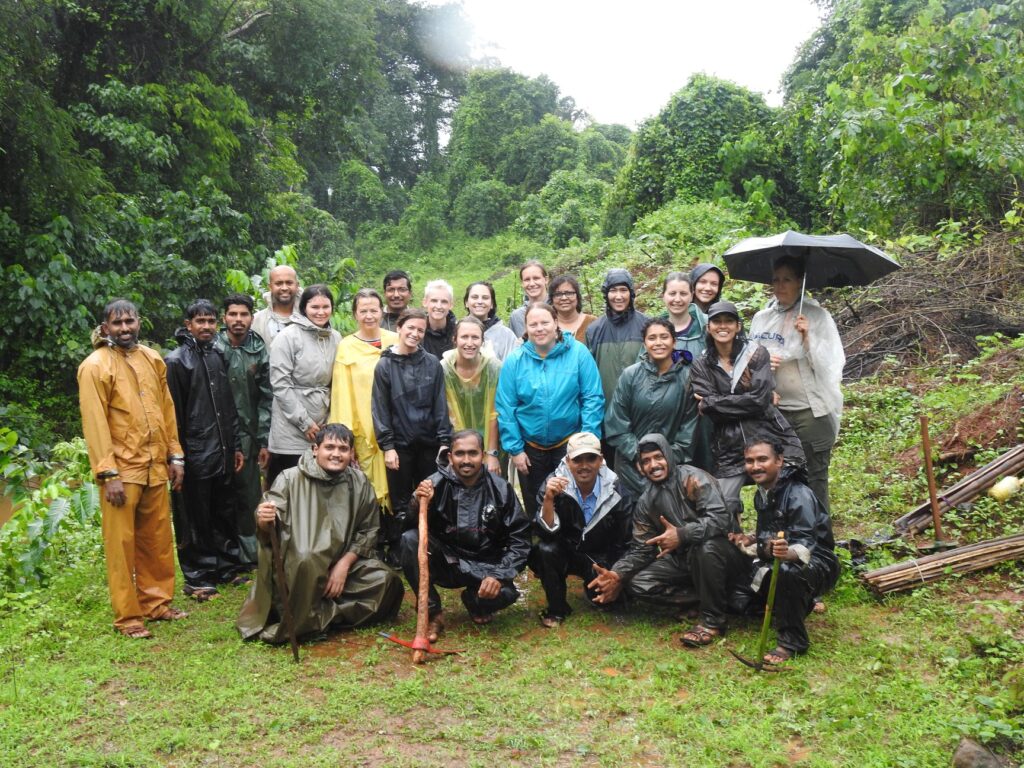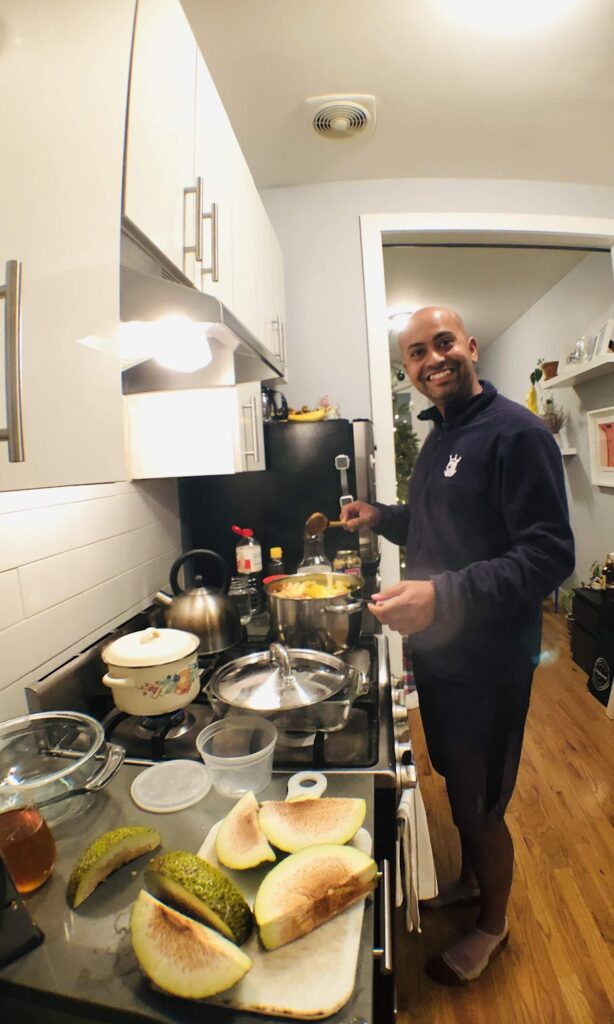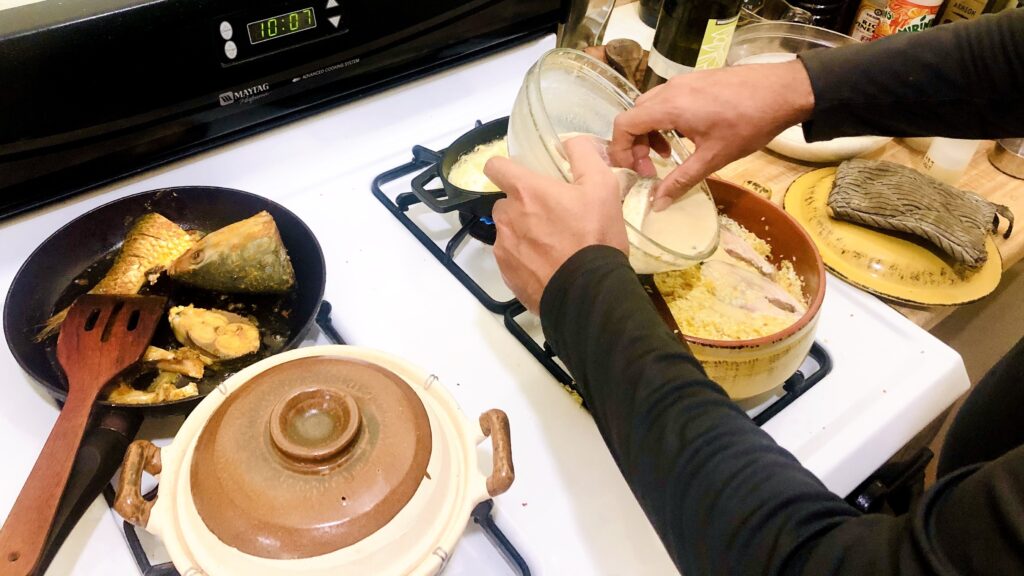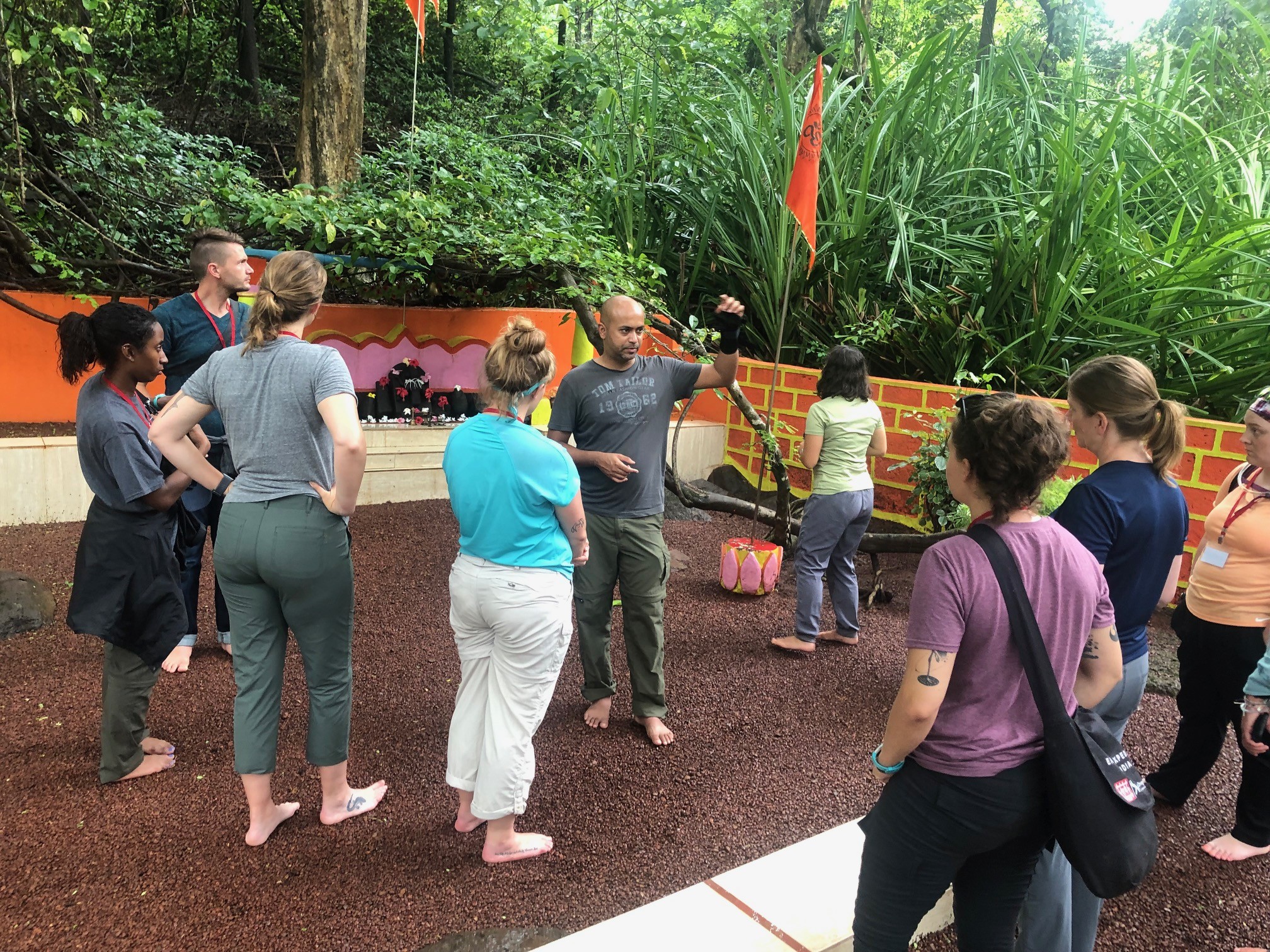Almost as soon as Shafkat Khan entered higher education, he knew he’d wind up in applied science. Which is probably why now, his perfect work day is one spent outdoors, working on conservation efforts in Detroit or around the world.
The Odum School alumnus graduated with his doctoral degree in Ecology in 2016. He stayed connected after graduation. He now serves as the Detroit Zoological Society’s director of conservation, and he’s passionate about what he does.
“Good modern zoos have a strong education program. They have a strong animal welfare program, too. And they have, in more recent times, more of an emphasis on conservation,” said Khan. That’s where he comes in, providing expertise and leadership on conservation and biodiversity projects at the local and global level.
Khan grew up in Bangladesh, in the country’s capital, Dhaka. He had what he describes as a full childhood, but his metropolitan upbringing didn’t allow for much interaction with nature beyond botanical gardens.
“I didn’t have full-on exposure to what we think of as greenspaces until much later, but once I did, it was just really inspiring,” said Khan. It was that sense of inspiration that led him towards a career in conservation.
The Odum School of Ecology: A foundation
Khan studied at UGA with graduate mentor Jackie Mohan, whose interest in climate change and forest ecology intersected with his. He conducted much of his dissertation research in the tropics of Costa Rica.
He’s grateful for the ecological bedrock he gained at the Odum School, and Khan says his time in Athens was impactful beyond his Ph.D. studies. Though he learned about the ICON (Integrative Conservation) graduate program too deep into his schooling to join, his relationships with those students confirmed his suspicion that after academia, he wanted to pursue applied science.
“Thinking about the conservation landscape back home and in Costa Rica, utilizing this ecological framework from the Odum School, and then this applied conservation focus from my colleagues—those are the three cornerstones from my time at UGA,” he said.
Those cornerstones still inform his work, which focuses on a whole-ecosystem rather than species-centric approach to conservation.

“This sort of broad aptitude has served me very well in my current position, because conservation as a practice doesn’t always have a central thread to it,” he explained. “It’s a more context-driven or problem-driven discipline. As a result, there isn’t one set pattern or a process of doing conservation. The solid ecological foundation I got from Odum School really underscores the conservation problem-solving that I am able to do in my work.”
He stayed connected with the Odum community since graduating. In March 2022, Khan joined 15 other alums to form a working group to plan the first-ever Odum School of Ecology Alumni Board.
Projects under way
In his role with the Detroit Zoological Society—which he’s been with since 2021—he’s worked with the Maijuna people and local NGOs to create a landscape-scale conservation program that helps protect 1,500 square miles of Amazon rainforest in Peru.
Closer to home, he worked with over 15 local partners to restore landscapes in metro Detroit, a project with urban climate and biodiversity benefits.
But to do any of it, he needs community buy-in. Learning how best to gain that has been a learning curve.
“In science or research, oftentimes, you anticipate that the people you’re talking with have a shared understanding. In a more applied or public policy setting, that’s not always the case,” said Khan. He’s learned to think about the human benefits to conservation efforts and to make the case for projects that benefit both residents and local ecosystems.


Nature-based solutions to flooding issues, for instance, are more compelling at a Town Hall meeting than just a proposed biodiversity effort on its own. And beyond city leaders, Khan is excited about engaging the general public in this work.
“It’s an encouraging time for many zoos,” he said. “They’re trying to think about what it means to be in a zoological setting and still do conservation. Do we remain a more animal-focused business, or do we really open up ways of approaching environmental problems through the educational tools zoos have, and let the public engage with these problems in a tangible way?”

